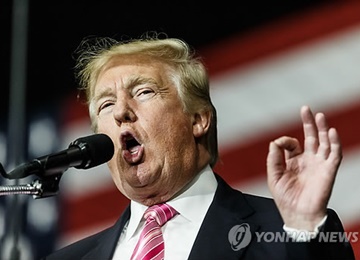Anchor: Throughout his presidential campaign, Donald Trump has time and time again slammed the South Korea-U.S. Free Trade Agreement(KORUS FTA) as a job-killing deal. With Trump’s presidential victory, concerns are surfacing that a renegotiation of the pact is likely.
In the first of our three-part series, our Mina Cha has more on the possible implications of Trump’s presidency on the KORUS FTA.
Report: U.S. President-elect Donald Trump has not once during his election campaign toned down his criticism of the South Korea-U.S. Free Trade Agreement(KORUS FTA).
[Sound bite: U.S. President-elect Donald Trump / Jul. 22 Nomination acceptance speech]
“[Hillary Clinton] supported the job-killing trade deal with South Korea. She has supported the Trans-Pacific Partnership. The TPP will not only destroy our manufacturing, but it will make America subject to the rulings of foreign governments.”
“No longer will we enter into these massive deals with many countries that are thousands of pages long and which no one from our country even reads or understands. We are going to enforce all trade violations against any country that cheats.”
He has called the KORUS FTA a disaster and a perfect example of broken promises, asserting that the pact eliminated 100-thousand jobs out of the U.S.
The Trump camp also issued a policy report, in which it concluded that the FTA is a failed deal and needs to be renegotiated.
With his presidency now solidified, experts say the chance is high Washington will demand Seoul to renegotiate the pact sometime within Trump’s first year in the Oval Office.
Under the current conditions, the KORUS FTA will be nullified within six months’ time in the event either side rescinds the settlement.
LG Economics Research Institute researcher Kim Hyung-joo says such a demand will be chaotic for South Korea, which does not want the invalidation of the KORUS FTA but will have no other choice but to accept it.
[Sound bite: Kim Hyung-joo, LG Economics Research Institute researcher (Korean)]
“The Trump administration is an outsider government, so it is difficult to predict. Besides, nobody can predict what kind of negotiation strategies it will come up with…”
However, many experts think that it is unlikely that the two countries will go as far as to repeal the bilateral FTA as it is deemed to be beneficial for both sides. According to the U.S. International Trade Commission(USITC), U.S. exports have increased by more than six trillion won, or five-point-two billion U.S. dollars, thanks to the deal.
Mina Cha, KBS World Radio News.


